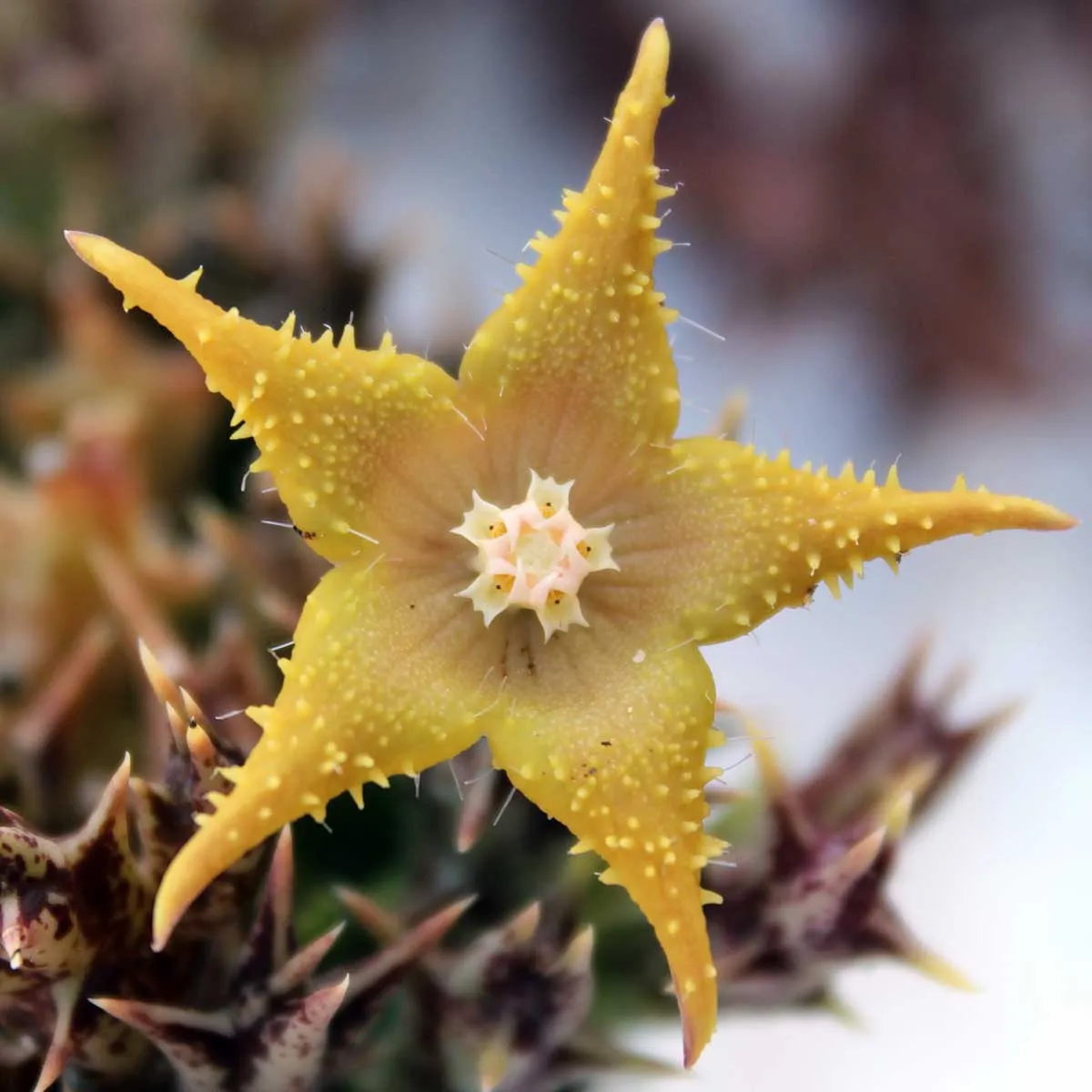Orbea dummeri is one of my favorite succulents in the collection and for this reason, today I want to show you the basic requirements for its cultivation. I hope they are very useful to you if you already own this plant or want to acquire it in the near future.

Tips for growing Orbea dummeri
Light and location
Orbea dummeri prefers bright but indirect light. Place it in a location where it receives filtered sunlight for at least 4-6 hours a day. Avoid exposing it to direct sunlight for long periods, as this can cause damage to its leaves.
Temperature
This plant prefers warm temperatures and does not tolerate extreme cold. Keep the temperature around 18-24°C during the day and avoid dropping below 10°C at night.
Soil and pot
Orbea dummeri requires well-drained soil to avoid waterlogging of its roots. Use a cactus potting mix or add sand and perlite to garden soil to improve drainage. Also, choose a pot with drainage holes to allow excess water to drain easily.
Watering
As a succulent, Orbea dummeri is sensitive to overwatering. Let the substrate dry completely between watering and then water thoroughly, allowing the water to flow through the bottom of the pot. In winter, reduce the frequency of watering as the plant goes into a state of rest.
Fertilization
During the active growing season, fertilize the plant with a diluted balanced fertilizer every 4-6 weeks. Avoid over-fertilizing, as this can damage the sensitive roots of Orbea dummeri.
Pruning
Orbea dummeri does not require frequent pruning, but you can remove wilted or dry leaves to keep it clean and healthy. Use clean, sharp scissors to avoid damaging the plant.
Propagation
This plant can be easily propagated through stem cuttings. Cut a healthy segment of the plant and let it dry for a few days before planting it in moist substrate. Keep the substrate slightly moist until new roots appear.
Pests and diseases
Orbea dummeri is generally resistant to pests and diseases, but you should be alert for possible infestations of mealybugs or red spiders. Treat any pest problems with mild insecticides or natural solutions such as neem oil.